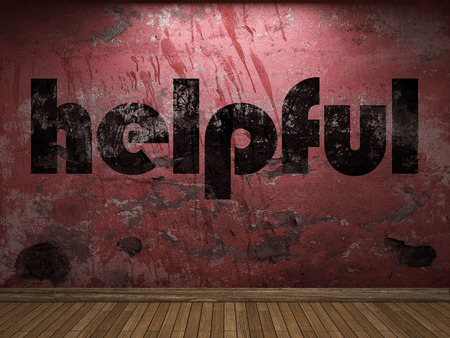
If I tell you someone is helpful, what image crosses your mind? Most people associate the word helpful with jobs like a crossing guard, or a traveler’s aide at the airport. Helpful people are nice to be around, but they’re rarely in charge, or so the thinking goes.
When my husband I were naming our first child, we got a book that gave the psychological response to names. We were shocked to find that our chosen name, Betsy, rated high on cheerfulness and helpfulness. Our second choice, Elizabeth, rated high on intelligence and power. So dismissive was I of helpfulness, we changed our daughter’s name at the last minute. Elizabeth would never be a Betsy because I wanted the world to regard her as a smart powerful woman.
Turns out, I had created a dichotomy that was absolutely inaccurate. Recent research reveals helpfulness is actually a key underpinning of success.
In a recent paper, noted author and Wharton School professor Adam Grant outlined a Harvard study of U.S. intelligence system. Grant writes, “The team, led by Richard Hackman, wanted to determine what makes intelligence units effective. By surveying, interviewing, and observing hundreds of analysts across 64 different intelligence groups, the researchers ranked those units from best to worst.
Then they identified what they thought was a comprehensive list of factors that drive a unit’s effectiveness—only to discover, after parsing the data, that the most important factor wasn’t on their list. The critical factor wasn’t having a stable team membership and the right number of people. It wasn’t having a vision that is clear, challenging, and meaningful. Nor was it well-defined roles and responsibilities; appropriate rewards, recognition, and resources; or strong leadership.
Rather, the single strongest predictor of group effectiveness was the amount of help that analysts gave to each other.”
Helpfulness isn’t just nice to have, it’s a must have. Sadly, most organizations undervalue helpfulness. In fact, leaders often create systems that promote the opposite of helpfulness. Imagine a helpful Betsy being stack ranked against an intelligent Elizabeth. A typical manager is more likely to give points, and thus raises and promotions to the person who displays individual smarts versus the person who is actually contributing more to group results.
In his article titled “Givers take all: The hidden dimension of corporate culture,” Grant cites evidence from studies led by Indiana University’s Philip Podsakoff demonstrating, “the frequency with which employees help one another predicts sales revenues in pharmaceutical units and retail stores; profits, costs, and customer service in banks; creativity in consulting and engineering firms; productivity in paper mills; and revenues, operating efficiency, customer satisfaction, and performance quality in restaurants.”
When employees are force ranked against each other, and must compete for resources, they’re rarely inclined to be helpful to each other. My father used to say, “Why do any of my people have to be a 2? If I’m doing my job right, all my people are 9 and 10s.”
Leaders who want to create a giver culture must create an environment where employees feel their needs will be met, where people view each other as essential players in solving problems and helping customers.
Thankfully our own Elizabeth is both helpful and intelligent. She never succumbed to the false dichotomy her well-intended parents once believed.
If you want to create success, and happiness, spread the word. Helpful doesn’t mean subservient, it’s actually the fastest route to success.
Comments are closed.